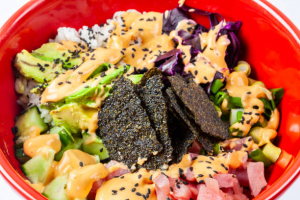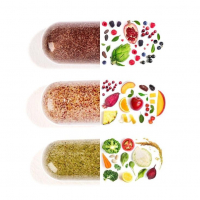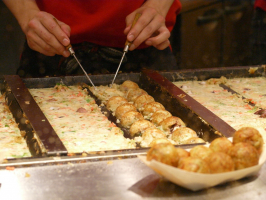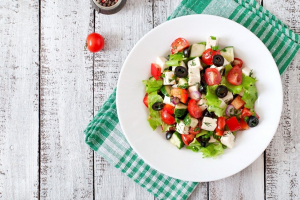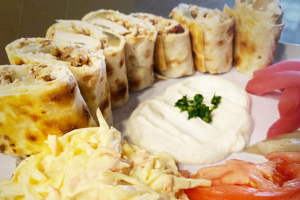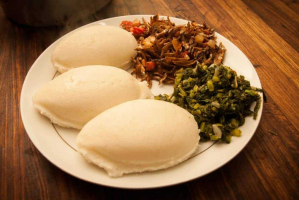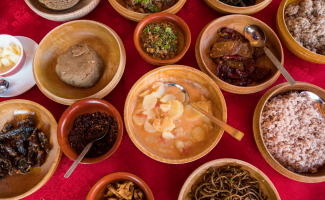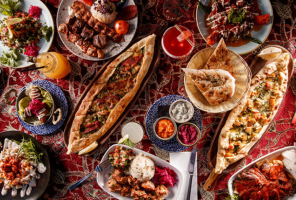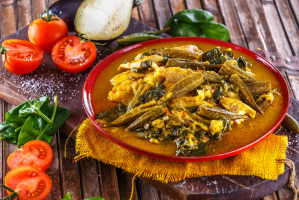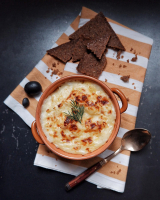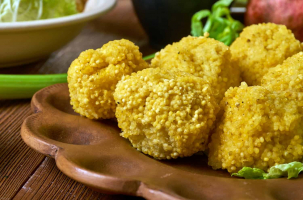Top 10 Best Kyrgyzstan Foods
Modern Kyrgyz cuisine has absorbed ancient nomad traditions while also evolving to embrace new ingredients as they became available in the land. Kyrgyz dishes ... read more...still include a lot of meat, milk, and dough products, but they also have vegetables, rice, and sugary snacks. If you're planning a trip to Kyrgyzstan and want to get a taste of the local cuisine, Toplist hopes our list of the Top 10 greatest Kyrgyz cuisines will point you in the right direction.
-
Kuurdak is a Kyrgyz dish made of roasted meat, offal, and onions. The meat and offal are fried with onions and various spices, and different types of meat – beef, mutton, horse meat, and even poultry in some cases – can be used.
Potatoes, carrots, and squash are sometimes added to the dish to make it more filling. It is prepared when the guests are pressed for time or just after the sheep slaughter, when no one is pressed for time, and kuurdak is followed by the main course, the famous beshbarmak.
There are two types of kuurdak: kara kuurdak or black kuurdak, which is made entirely of meat and no onions, and tondurma kuurdak or frozen kuurdak, which is made entirely of meat and has no contact with air, ensuring that the meat stays fresh for an extended period of time.
The latter was invented by ancient nomads who preserved meat with sheep fat.
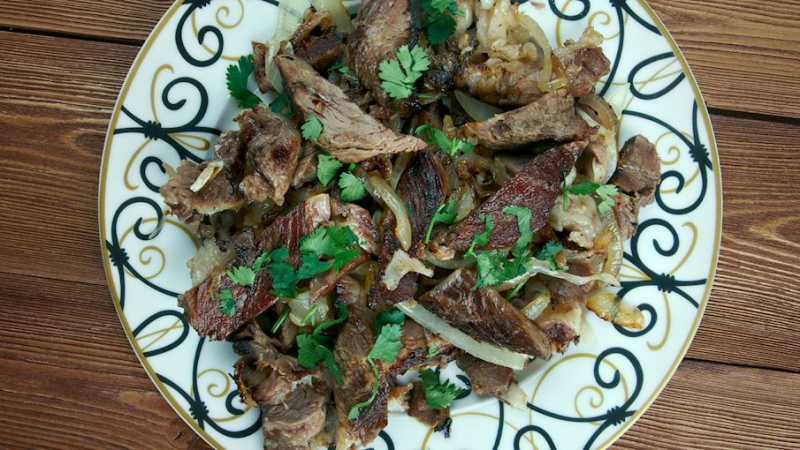
tasteatlas.com 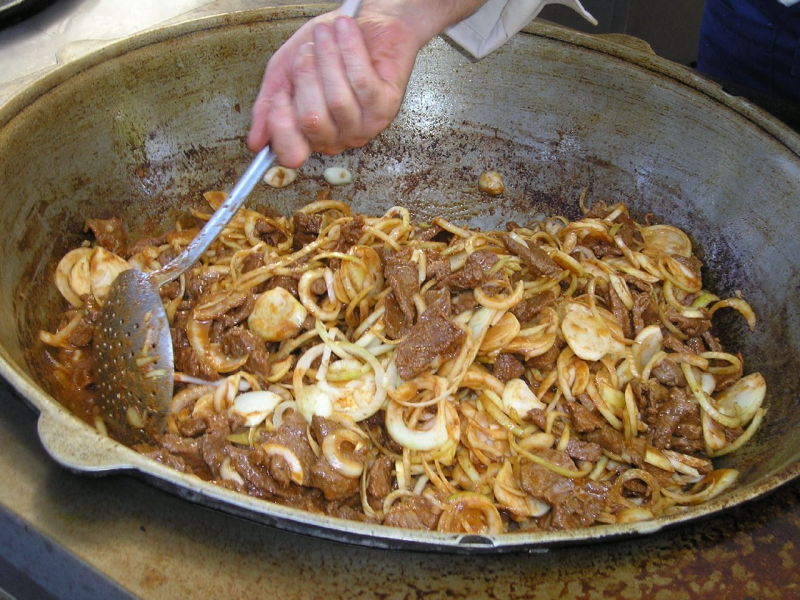
Wikipedia -
Oromo is a large steamed pie with regional variations found in Kyrgyzstan and Kazakhstan. It's made with a thin sheet of dough that's been sprinkled with various ingredients before being rolled into a large coil and steaming. The fillings are extremely versatile, ranging from shredded meat to various vegetables such as potatoes, pumpkin, or onions.
The thin, delicate dough of oromo, one of the most traditional Kyrgyz dishes to try, is the key to its deliciousness. Before being formed into a spiral and steamed, the dough is rolled out into a thin layer and topped with a filling. The question of which filling is best for Kyrgyz oromo is still hotly debated. Some prefer potatoes and onions, while others swear by minced meat and onions. To appease both parties, some chefs have resorted to preparing oromo with meat, potatoes, and onions, and this filling appears to be the most delicious of all! Oromo with carrots or seasonal pumpkin is also available.
This traditional dish is typically served sliced and should always be enjoyed freshly prepared. It is occasionally served with tomato or cream-based dips.
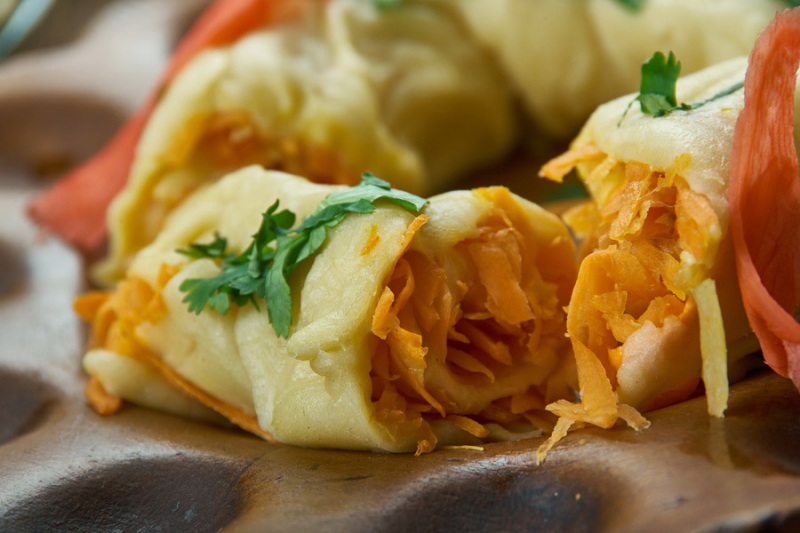
advantour.com 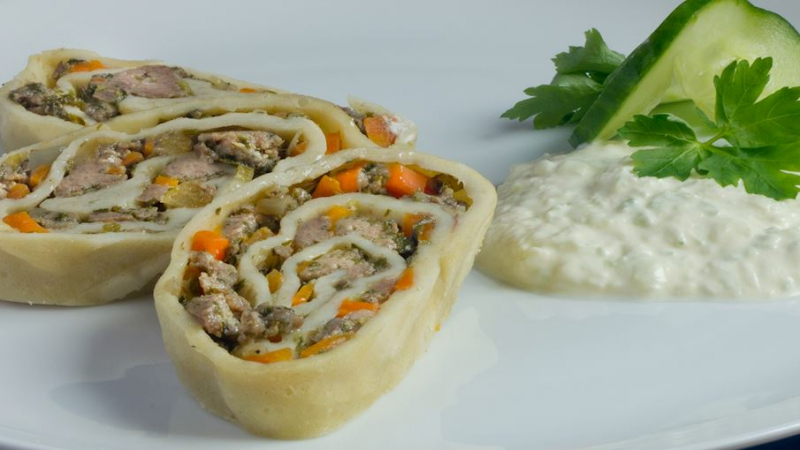
tasteatlas.com -
Paloo is the Kyrgyz word for what is known as plov in Central Asian cuisine. It consists of roasted meat (usually mutton or beef) mixed with roasted shredded carrots, jiucai (garlic chives), and cooked rice in a large qazan (a cast-iron cauldron). Whole fried garlic cloves and hot peppers are used to garnish the dish.
Rice, meat, carrots, onions, and garlic are common ingredients in this traditional Kyrgyz dish. It is commonly referred to as the Kyrgyz version of plov and is typically made with beef or mutton, with the occasional addition of chicken. Traditionally, paloo is cooked over an open fire in a qazan, which is a large cast-iron cauldron.
Uzgen Paloo is made from locally grown rice from Kyrgyzstan's southern Uzgen district. The rice is fried with the other ingredients, and the dish is usually topped with shredded meat, with fried garlic and chili peppers on the side. Shirin paloo is a popular vegetarian variation that is enhanced with dried fruits like apricots, prunes, or raisins.
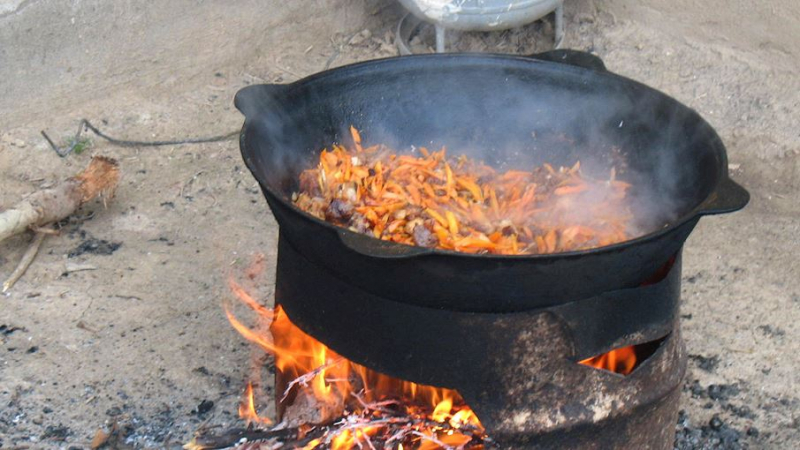
tasteatlas.com Mazar Cuisine -
Chalap is a light and refreshing beverage made by combining suzmo (tangy yogurt), water, and salt. If you dislike sugary drinks, this may be the best option for you. The modern version of this traditional drink is available in stores with carbonated water.
The beverage is typically consumed as a refreshment during the summer. Chalap is a beverage that is consumed on extremely hot days and goes well with almost any food. Whether you are on the beach or eating 'shashlyks,' you may not find a more appropriate beverage to accompany your meal.
Chalap is a traditional Kyrgyz beverage found primarily in rural areas. It is made with a combination of still or carbonated water, salt, and qatiq – a thick fermented milk product. Chalap is considered an acquired taste by many Westerners, and some describe its flavor as liquefied, pungent, salty, smoked cheese.
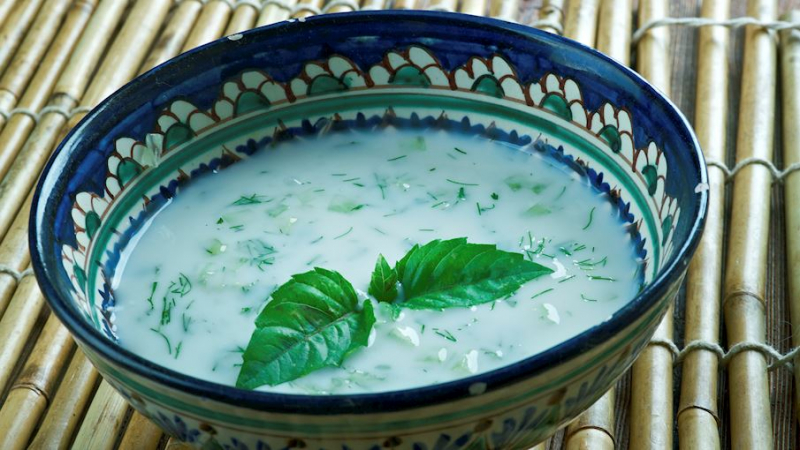
TasteAtlas 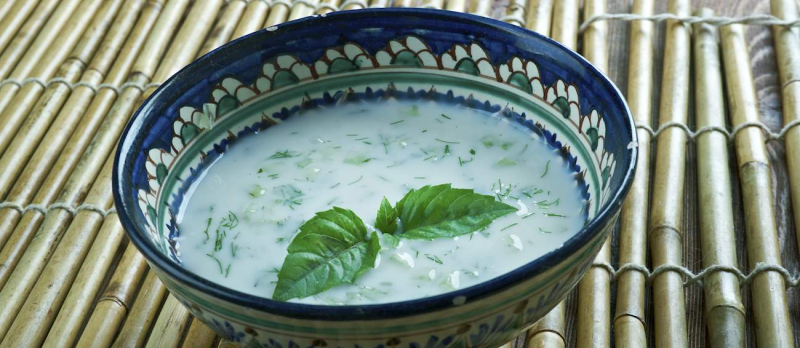
TasteAtlas -
Beshbarmak is Kyrgyzstan's most famous or iconic dish. I must admit that I was perplexed when I looked it up online... The first explanations offered stated that beshbarmak is a direct translation for 'five fingers,' because Kyrgyz people traditionally eat the dish with their hands. Given that it is primarily a (flat) pasta dish, I am not entirely convinced. Aside from the utensils, beshbarmak is quite tasty.
The dish was traditionally made with horse or sheep meat. Nowadays, it appears to differ quite a bit depending on where you eat (in a city restaurant or nomadic family homestay).
Cooked meat is served on top of traditionally prepared pasta cut into thin squares or strips. And beshbarmak is frequently accompanied by a liquid meat broth on the side or poured over the top.
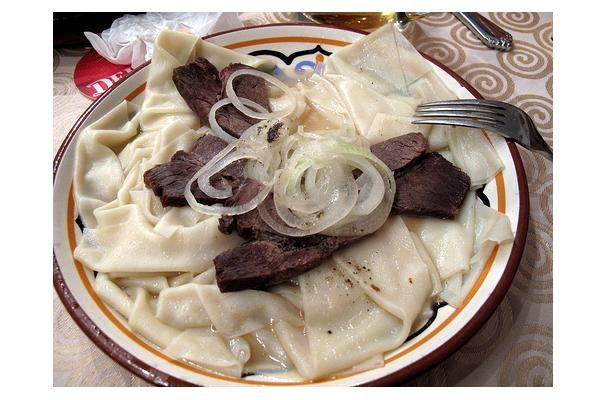
Pinterest 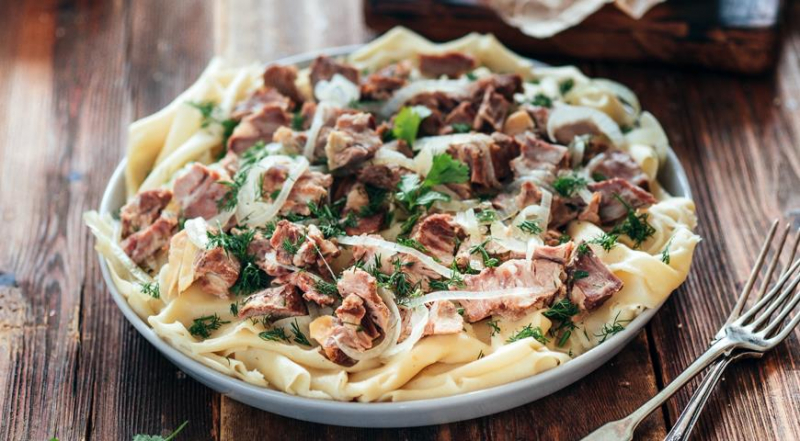
Taste the Diversity -
Ashlyam-fu, arguably Kyrgyzstan's most popular dish, is popular with both tourists and locals. Its flavor is as delectable as its name is exotic, and it is sure to tempt you throughout your journey.
Ashlyam-fu (also spelled ashlyanfu and ashlyan-fu) is a cold soup from Dungan cuisine that arrived in Kyrgyzstan in the mid-18th century. Its name is a combination of "ash" and "liang-fen"; "ash" means "food" in Kyrgyz, and "liang-fen'' is the name of a cold noodle dish in Chinese, which is widely spoken by Dungans.
Unlike the Chinese version, the Kyrgyz soup recipe includes meat, noodles, eggs, and vegetable broth in addition to starch. If you like spice, try lazy (lazjan), a spicy seasoning made of red pepper and sunflower oil. The best ashlyam-fu is made in Karakol and served with fried potato pie.
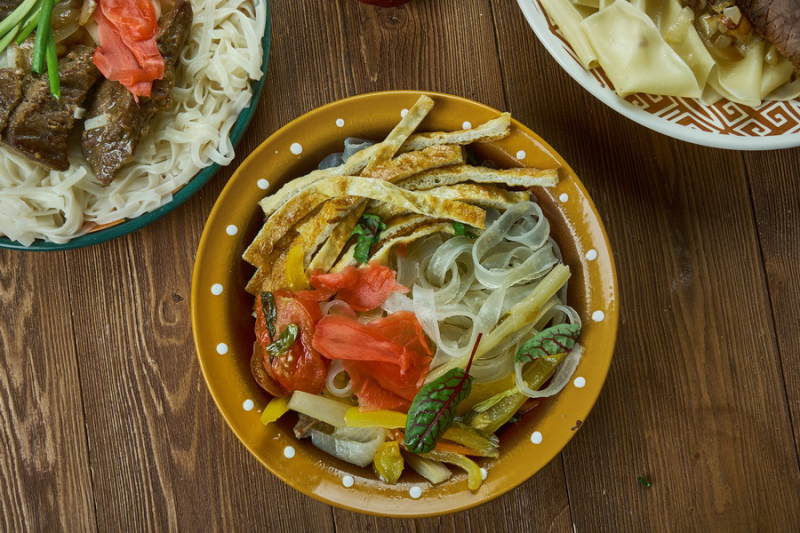
advantour.com 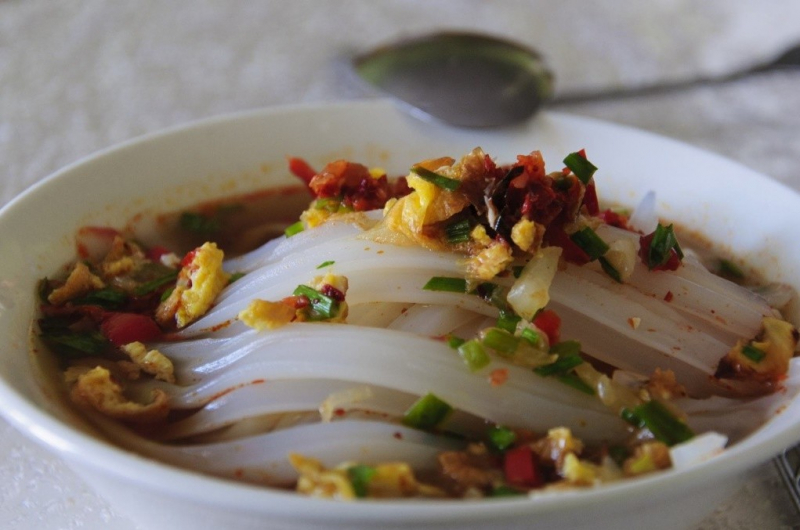
24.KG -
Tash-kordo (stone food) was one of the first Kyrgyz dishes to be discovered. To make this meal, the meat of a young lamb was cooked over stones, which was a common method of food preparation prior to the invention of ovens. Kyrgyz nomads would dig a 1-2 meter deep hole and fill it with stones and wood to start a fire. After the fire was extinguished and coals appeared, the meat was rubbed with salt and placed in a ram's washed stomach, which was then covered with earth, skins, and large leaves. The meat would not get dirty as it cooked for 5-6 hours thanks to these natural "dishes."
Tash-kordo is now made in both an oven and traditional stone pits. Today, if the meat is cooked in a pit, it is hung on special hooks rather than being placed in a ram's stomach. Tash-kordo is still considered a delicacy in Kyrgyzstan.
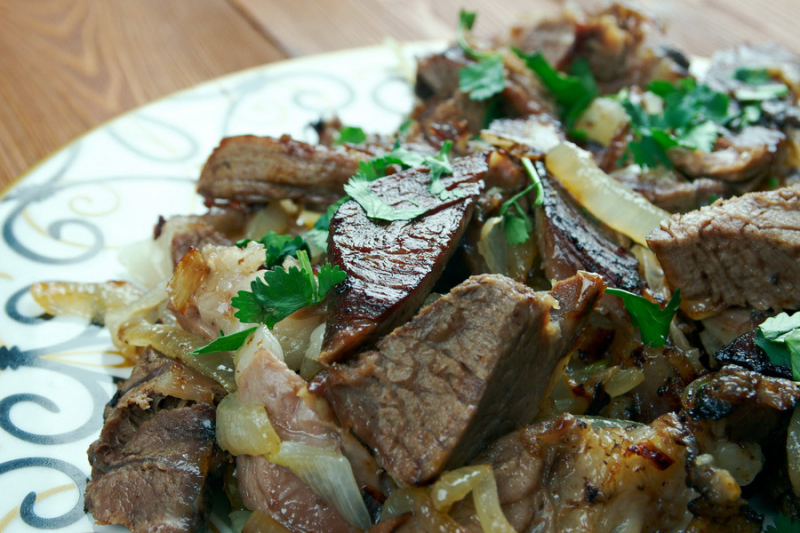
advantour.com 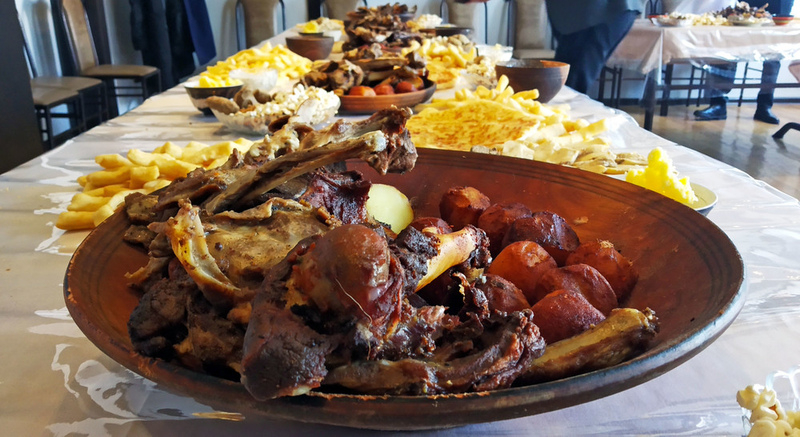
AKIpress News Agency -
The Broke BackpackerShishkebek is a type of Kyrgyz liver shish kebab. This dish first appears in the Orkhon-Yenisei writings of the 5th-8th centuries. Today, shishkebek is made by marinating young animal meat (rather than liver) in onions, and the more onions used, the juicier the kebabs!
The most flavorful shishkebek is made by frying the meat on grape or raspberry twigs. If such firewood is not available, oak, linden, apple, cherry, or apricot twigs are substituted. Conifer branches are the only type of firewood that cannot be used because spruce, fir, and pine impart an unpleasant flavor to the meat. While cooking, shishkebek should be turned frequently. While cooking, shishkebek should be turned frequently.
When the kebabs are done, they are served with vinegar, onions, and salad.
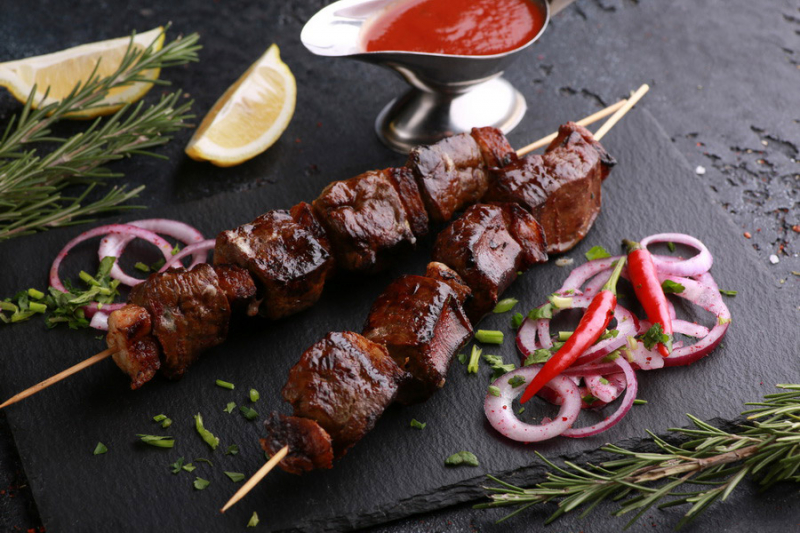
advantour.com 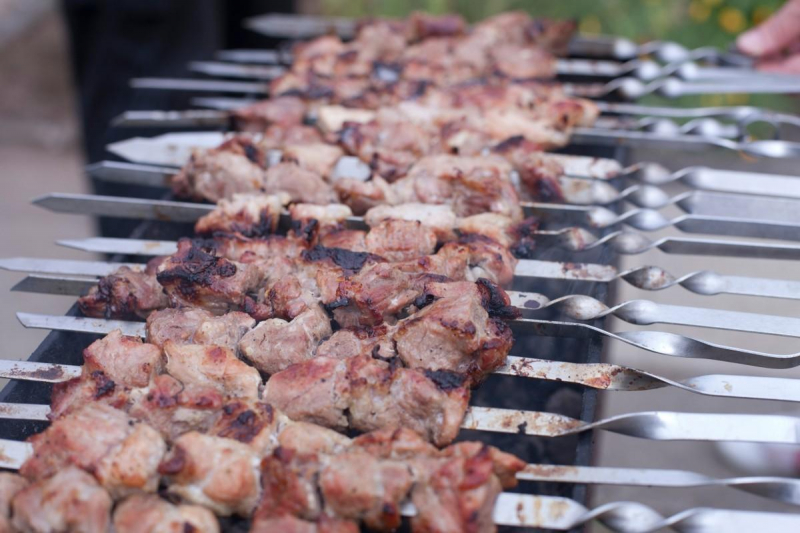
The Broke Backpacker -
Laghman is one of Kyrgyz cuisine's most popular dishes. It's a hearty noodle and broth dish that's easy to understand why it's so popular.
It is considered a national dish of the local Dungan ethnic minority population in Kyrgyzstan, who presently live primarily in Karakol. (After four days in Karakol, we concluded that laghman would undoubtedly be the town's signature dish.) Laghman or Ashlyamfu, to be precise, but I'll get to it later).
Influence on the traditional roots of laghman can be traced back to Xinjiang, China's northwestern province. The name laghman means "hand-pulled noodles," which is how the dish's major ingredient is described. The fresh noodles are usually served with a thick soup or broth, as well as meat.
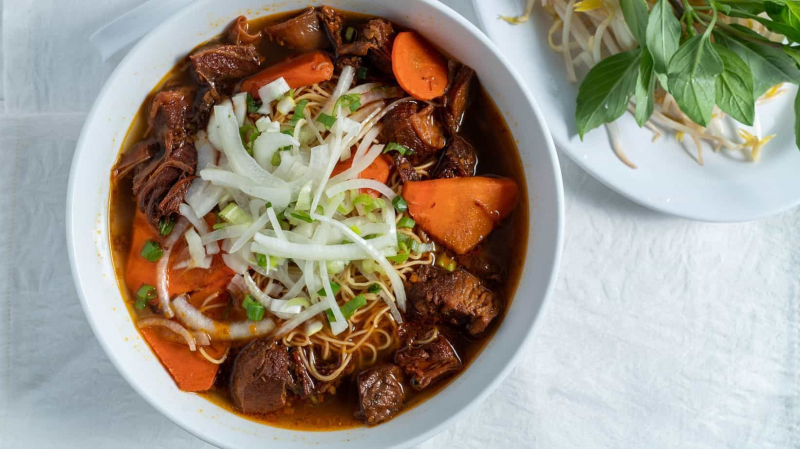
Pinterest 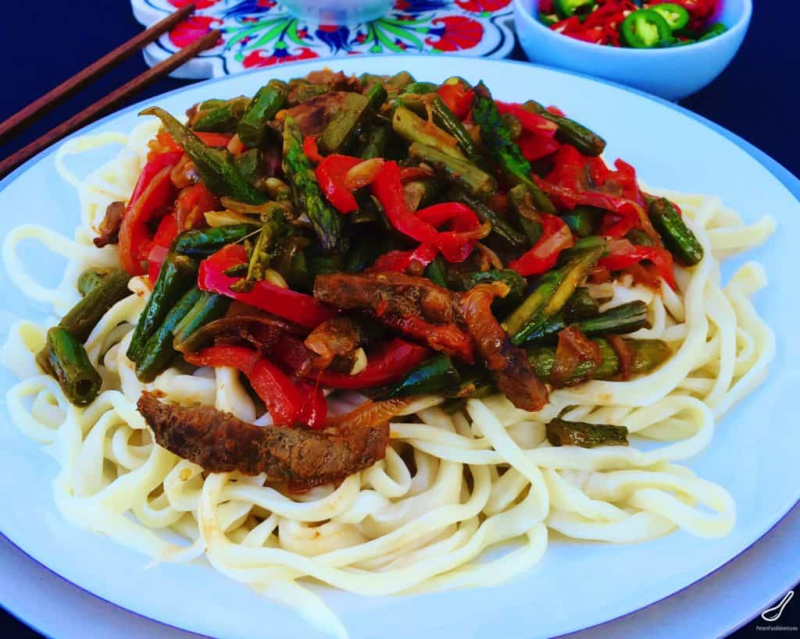
Peter's Food Adventures -
In Kyrgyz cuisine, Kymyz is a very old name. It's a drink that's created using horse's milk in several parts of Central Asia and Mongolia (mare). The mare's milk is fermented and has a distinct flavor. Because the fermented milk is moderately alcoholic, drinking and sharing kymyz has become something of a tradition.
Serving guests a bowl of kymyz remains an integral aspect of nomadic hospitality, and the tradition of sharing a kymyz drink is a vital tenet of Kyrgyz culture and cuisine.
Furthermore, the benefits of fermented horse milk are said to improve intestinal health and digestion. Fresh kymyz is only accessible during the summer months, when nomadic herders are grazing their horses.
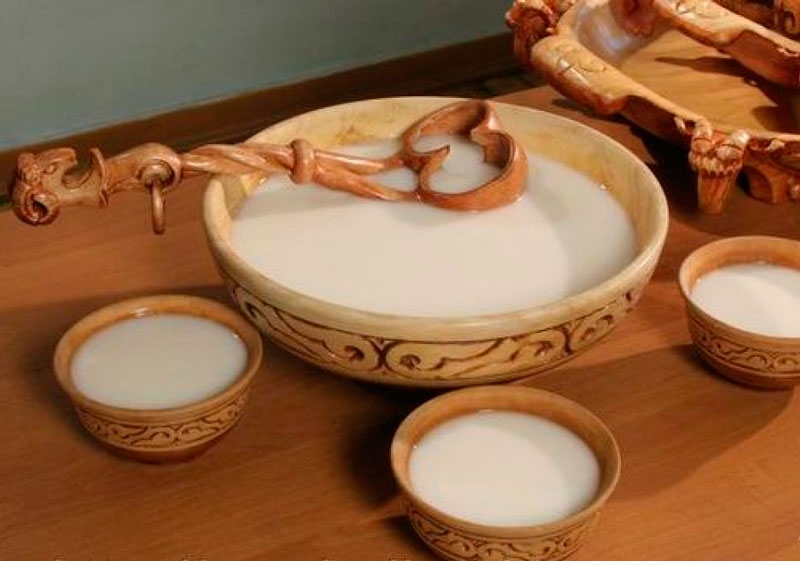
Knowinsiders 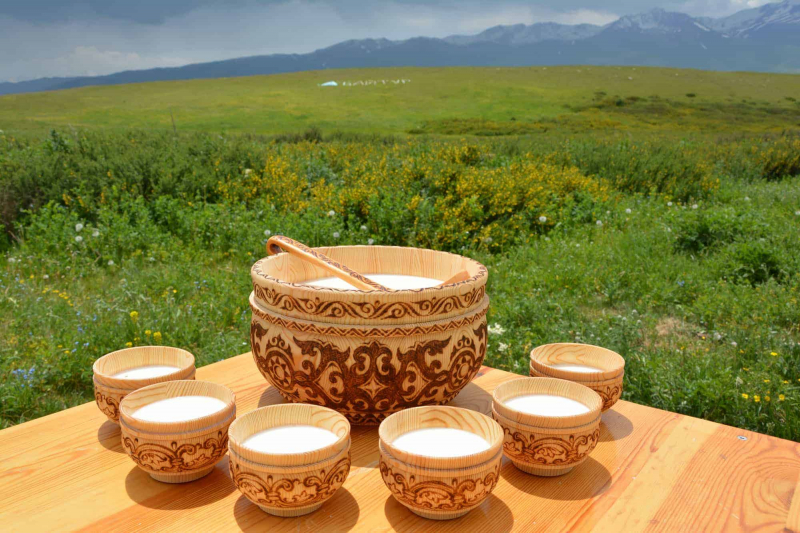
Destination Jyrgalan













